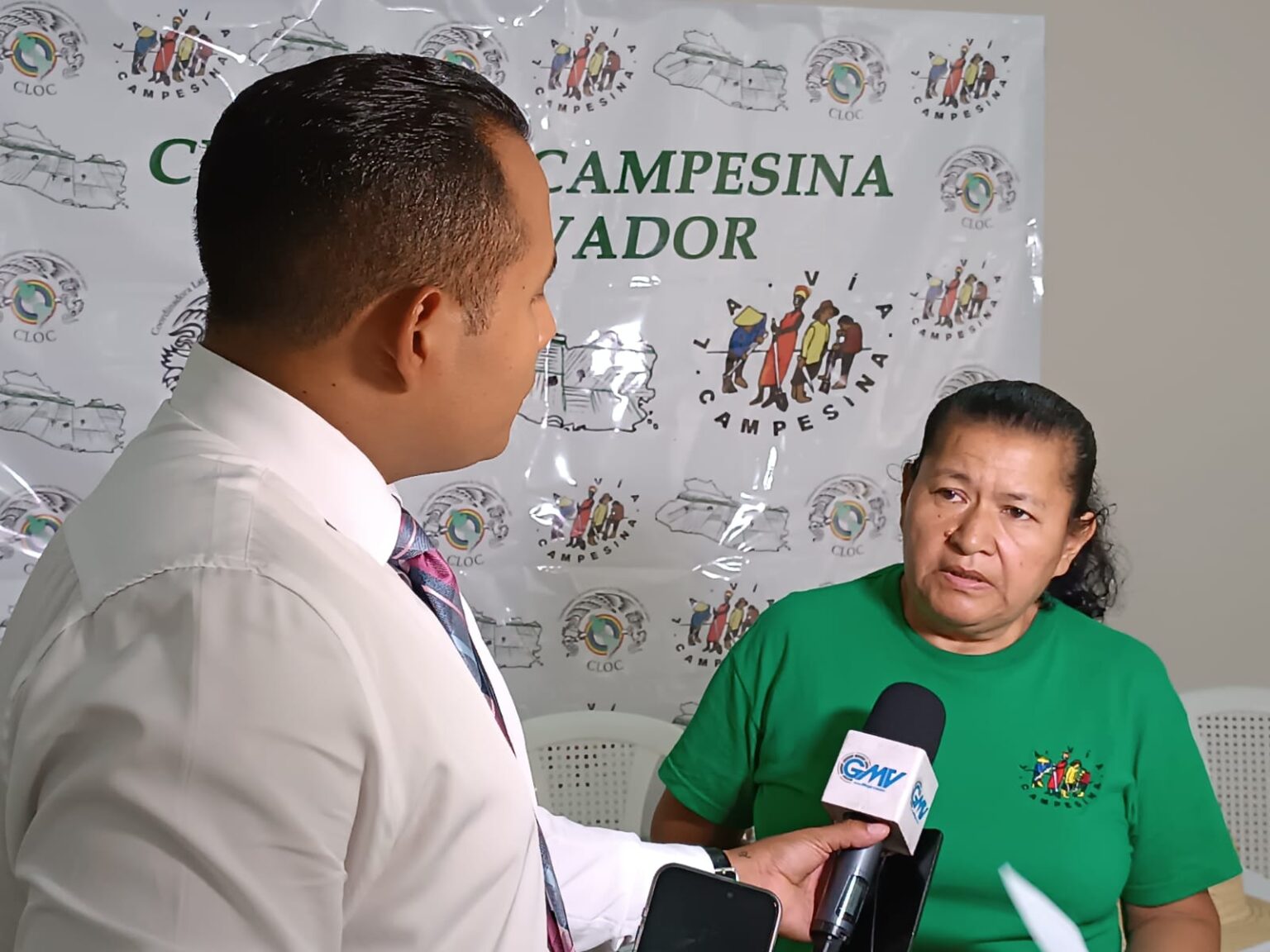The CLOC-Vía Campesina-El Salvador, representing peasants, small-scale farmers, landless individuals, rural youth, women, indigenous peoples, and others living and working in rural areas in El Salvador, wishes to bring to the public’s attention the following:
In December 2018, the Salvadoran government committed by adhering to and ratifying, during the United Nations General Assembly, the Declaration of the Rights of Peasants and Other People Working in Rural Areas (UNDROP). However, the Salvadoran state has not made the necessary efforts for the real implementation of UNDROP in the country. On the contrary, we have experienced a period of recession for the agricultural sector, characterized mainly by an increase in rural poverty, rising from 22.8% to 26.6% (2019-2022) in total poverty, and from 4.5% to 8.6% in extreme poverty (2019-2022). Additionally, there has been a reduction in cultivated areas of maize and beans, with a loss of at least 10,000 hectares of maize between 2019 and 2022, and approximately 1500 hectares of beans during the same period. Furthermore, there has been a decrease in the active population in agricultural activities between 2019 and 2022, with over 11,000 fewer people working in the fields.
Moreover, these regressions have been accompanied by the elimination of public policies in poverty, development, rural modernization, rural dawn, and family agriculture, without any effective replacement. Additionally, there has been a reduction in the budget allocation for the “Agricultural Packages” program, decreasing from $25.5 million in 2019 to $19.3 million in 2024.
Furthermore, there has been little or no interest in adapting national legislation to the content of UNDROP in strategic laws such as the Water Resources Law, which does not guarantee the full participation of the rural population in water management, or the Law on Expropriation of Real Estate for Municipal and Institutional Works, which threatens to expropriate lands that the government deems of public utility. Omission is another significant factor for the approval of the constitutional reform on the Human Right to Food, the law on Food and Nutritional Sovereignty, the law on the Prohibition of the Use and Spraying of Agricultural Chemicals, the Climate Change Law, or the permissibility of a Seed Law that addresses new social and environmental challenges, particularly for the peasant population and other historically marginalized rural communities.
Finally, the recent change in leadership at the Ministry of Agriculture and Livestock (MAG), which has already had 5 ministers in as many years, promoting Oscar Domínguez as the new minister, who has no experience or connection with the sector, confirms the government’s disregard for the protection and revitalization of national agriculture. This change comes just before the start of the 2024-2025 agricultural season, where MAG should already be distributing agricultural packages, amidst a context of climate and food crisis, with forecasts of disruptions due to the El Niño and La Niña phenomena, an extremely active hurricane season, and high food prices for the population.
This predicts a bleak future for national agriculture, where the rural population feels the lack of direct support and incentives to the sector, especially peasant women who have been excluded from the agricultural package program. This situation forces the peasant population to sow less and less, with projections of cultivated areas in maize and beans estimated at only 70% of what was sown before input price increases, reduction of agricultural packages, and the latest impacts of climate change.
For all these reasons, the CLOC-Vía Campesina El Salvador demands:
- That the State proceed with the implementation of the content of UNDROP in national legislation.
- That the State refrain from approving laws and revoke those that go against the spirit of UNDROP.
- That the State establish fair markets for the commercialization of our production.
- That the State protect national production from food imports that destroy national agriculture.
- That the State promote access to credit with climate insurance and widespread technical assistance at the national level for the production of staple grains.
- That the Ministry of Agriculture establish a permanent dialogue table with peasants to address the constant crises affecting national agriculture.
Additionally:
- We reject the introduction of transgenic seeds through unconsulted legislation, as this threatens the existence of local seeds and criminalizes peasants who conserve and protect them, as well as the expropriations of small subsistence farming.
- We propose, through a national pact, the establishment of a new Comprehensive Agrarian Reform that promotes healthy nutrition, environmental protection, and respect for the rights enshrined in UNDROP and Article 105 of the Salvadoran Constitution to address the challenges of climate change.
Speeches and advertising are not enough; we need more budget for the Ministry of Agriculture and Livestock, for CENTA, and for all rural support lines, especially those aimed at rural women, peasants, and indigenous peoples.
Without peasants, there is no food. Let’s refocus on the countryside.

